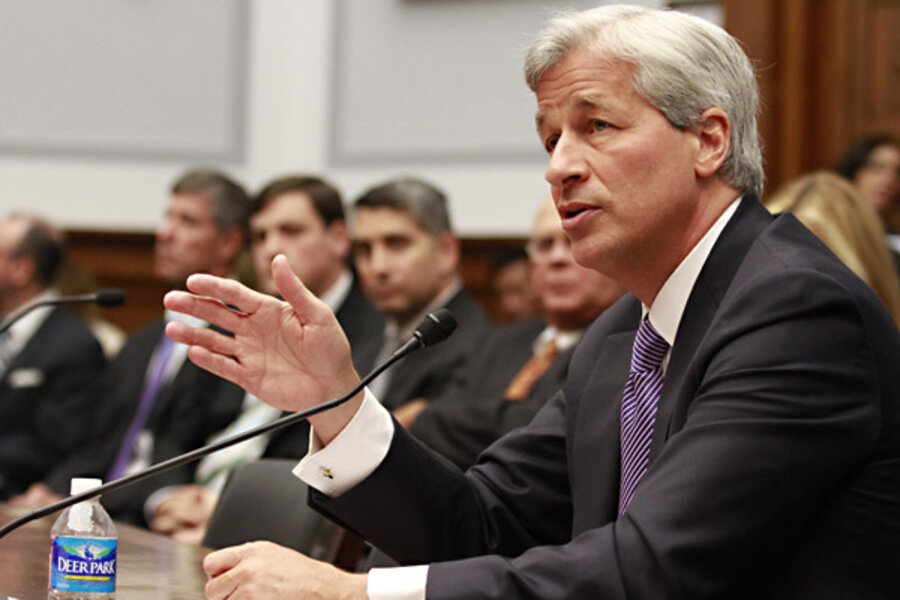Dimon in the hot seat before Congress
Loading...
JPMorgan Chase CEO Jamie Dimon had a much tougher reception Tuesday when he returned to Capitol Hill for a second round of questions over the bank's $2 billion trading loss.
House lawmakers from both parties pressed Dimon on a number of fronts: Did JPMorgan manage risk properly? Why was the bank trading so much out of its London office? Has the bank become too large and complex to control?
The hearing before the House Financial Services Committee was far more combative in tone than Dimon's appearance last week before the Senate Banking Committee.
RELATED: Can you manage your money? A personal finance quiz.
For his part, Dimon again apologized for the trading loss and the damage it caused to shareholders. The company has lost about $23 billion in market value since it came to light on May 10.
But Dimon stressed that taxpayers and customers of the bank were not affected by the loss.
And when pressed, Dimon was firm and frank.
At one point, Rep. Sean Duffy, R-Wis., asked Dimon how high the losses could mount.
"Is it fair to say that JPMorgan could have losses of half a trillion, or a trillion dollars?" Duffy asked.
Dimon replied bluntly: "Not unless the Earth is hit by the moon."
He avoided putting a number of the bank's trading loss, which has raised concerns about the risks large banks pose to the U.S. financial system just four years after the financial crisis.
Dimon also bristled at a suggestion from Duffy that JPMorgan has become "too big to fail." With $2.3 trillion in assets, taxpayers might be asked to step in to rescue the bank if its trades put the broader financial system at risk, Duffy said.
"No, we're not too big to fail," Dimon told Duffy in a heated exchange. "I don't think there's any chance we're going to fail. But if we did, any losses the government would bear should go back, be charged to the banks."
Dimon defended the bank's risk strategy ahead of the loss.
The bank did its best to update investors on the level of risk and trusted its methods for assessing those risks, he said. The models used provided the best information at the time and are frequently updated, he said.
"We disclosed what we knew when we knew it," Dimon told the panel.
The Securities and Exchange Commission is examining whether JPMorgan's earnings report on April 13 gave adequate information on the risk model the bank was using.
Earlier at the hearing, SEC Chairman Mary Schapiro told the panel "there could be" violations that would merit legal sanctions against the bank.
Democrats questioned Dimon about the bank's trading operation in London, where the loss occurred.
Rep. Brad Sherman, D-Calif, asked why the bank devoted hundreds of billions of dollars to that operation when that money could go have gone to small business loans in the U.S.
"We never stopped making loans," Dimon insisted.
He also defended an exemption that allows looser oversight of the sort of derivatives trading overseas that the London operation engages in.
Customers "will go elsewhere if we can't give them the best possible deal," Dimon said. "The main mission of this company is to serve clients around the world."
Not all lawmakers went after Dimon at the hearing. Several Republicans used the hearing to ask Dimon about his views on the European debt crisis. Others took the opportunity to criticize regulators for failing to detect the risks the bank was taking before suffering the loss.
"We need more information about the level of information-sharing among the agencies and how five agencies with a combined 100 or more personnel supervising JPMorgan at the time did not know about the substantial size and risk of these trades," said Shelly Moore Capito, R-W.Va.
Dimon defended the regulators. He said that if bank couldn't detect the risks, it's unreasonable to expect that the regulators could.
RELATED: Can you manage your money? A personal finance quiz.







